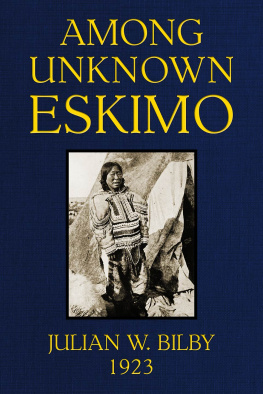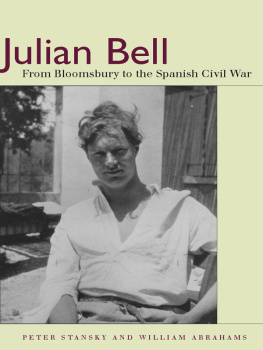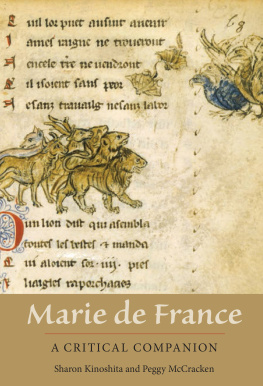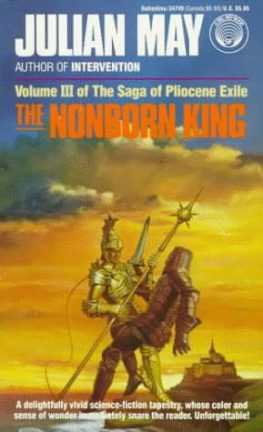Oh, my dear Lord, will this journey never end? the elder lady murmured.
It was hardly an uplifting image, and she closed her eyes. It was too much effort to keep them open.
THE SMALL PROCESSION WOUND UP THE STEEP MOUNTAIN path, leaving the French border behind as they headed toward the Spanish mountain town of Roncesvalles, the outriders sheltering beneath wide hat brims from the broiling afternoon heat. Inside the heavy, lumbering coach the atmosphere was stifling, the air so thick and hot it was like a suffocating blanket, making every breath an effort. The two women leaned back against the leather squabs, the elder, veiled and gloved despite the heat, fanned herself and moaned softly, occasionally dabbing at her lips with a lavender-scented handkerchief. Her companion slumped in a corner, her back drenched with sweat, the dark taffeta of her gown sticking to the squabs. Her hat lay on the seat beside her, and she'd thrown off her veil long since. Her face was pink and hot, beads of perspiration gathered on her forehead, trickling down the side of her nose. Her hair, the color of summer wheat, clung damply to her small head, and her violet eyes were languorous under drooping lids.
The young lady didn't reply, knowing the question to be rhetorical. It had been asked every few minutes since they'd boarded the coach that morning. She regarded her companion with a degree of contempt. It was certainly hot and uncomfortable, but since Miss Henderson had been adamant in her refusal to draw back the leather curtains blocking the windows of the coach, enclosing them in this airless oven for reasons of propriety, as if there were anyone but a goatherd to look in on this mountain pass, Cecile Penhallan could find no sympathy for her sufferings.
If her duenna carried a little less flesh, she'd find it more bearable, the girl reflected, idly diverting herself with the image of Marianne Henderson's rolls of white flesh melting in the heat like butter in a pan.
The crack of a rifle shot, the plunging halt of the horses, brought her upright, flinging aside the leather curtain as her duenna screamed.
Oh, it's brigands. I know it is. We'll be robbed. Attacked. They'll take our virtue oh, my dear Miss Penhallan, what will your brother say?
La, ma'am, I doubt Cedric believes I'm still in possession of my virtue, Cecile observed, peering through the window aperture. And who's to say he's incorrect, she added mischievously, her eyes alive and glowing, her previous languor banished. Above the babble of the outriders, the curses of the coachman, came a clipped, commanding voice that cut through the cacophony like scissors through silk.
Oh, Miss Penhallan, how- But whatever the lady sinking slowly in a crackle of starched taffeta to the floor of the coach.
The door of the coach was pulled open. Senorita, I am desolated to discommode you, but I must ask you to descend, the same voice said courteously in heavily accented English. A hand reached in-an ungloved hand with a massive square-cut ruby on the little finger.
Cecile placed her own small white hand, similarly ungloved, in the one that had appeared. She felt the rough swordsman's calluses on the palm, and the strong brown fingers closed over hers, drawing her forward out of the coach into' the blinding white sunshine.
She looked up into a bronzed face, dark eyes like a hawk's fixed on her countenance, a strong mouth set in a firm, intimidating line, long black hair caught in a ribbon at the nape of his neck.
Who are you?
They call me El Baron. He offered a mock bow. Oh, Cecile breathed. This was the robber baron-the brigand whose name mothers used to frighten their children into obedience. The undisputed ruler of the mountain passes between Spain and France. And he was the most beautiful creature Cecile Penhallan had laid eyes on in all her seventeen years.
Gazing up at him, losing herself in the black eyes, she understood that she had been waiting for this meeting since she'd first felt the strange stirrings of her body, the unsettling energies that had driven her to defy her brother, a mocking defiance that had led to her present exile.
The baron was returning her scrutiny, and a light flickered in his eyes, then sprang into flaming life. And Cecile knew that her own eyes reflected the flame and gave it back to him. She moved closer to him as if drawn bran invisible string, unaware now of the scene around them, the pawing horses, the terrified outriders surrounded by the band of brigands, who sat their horses easily, bandoliers over their shoulders, rifles.casually resting on their pommels. They made no threatening moves, but there was no need to. Their very presence was intimidation enough.
Come, El Baron said. It was a command, but it was also a simple statement.
Catching her around the waist, he lifted her onto the back of a powerful chestnut with a white blaze on his forehead and swung up behind her.
Sit back, he said. You have nothing to fear, querida.
I know, Cecile replied simply, leaning back against the broad chest as his arms went around her and he gathered up the reins. Where are you taking me?
Home, he said.
Cecile glanced back as the horse moved forward, surefooted on the narrow climbing track. Marianne had recovered from her swoon and was leaning out of the window, one mittened hand fluttering frantically at her departing charge, a strange gibbering chatter of protest coming from beneath the veil.
Cecile chuckled. Poor Marianne. She raised her hand in a jaunty salute. It was the last glimpse Marianne Henderson ever had of her-indeed, the last glimpse anyone who'd known Cecile Penhallan before she encountered El Baron ever had of her.
The band of brigands drew back from the coach as their leader's mount broke into a trot. They offered a mock salute to the trembling outriders and the still gibbering Miss Henderson and turned to follow their leader and his captive, leaving Miss Henderson's virtue as intact as the leather satchel of money stashed beneath the seat of the coach.
This had been no ordinary highway robbery, but they left with what they'd come for.
THE AIDE-DE-CAMP'S BOOTS CLATTERED ON THE WOODEN stairs as he hastened toward the commander in chiefs private office at headquarters in the town of Elvas. Outside the door, however, he slowed, adjusted his stock, pulled down his tunic, smoothed his hair. The Peer didn't look kindly on untidiness, and he had a savage tongue when he chose.
Enter! The command rasped at his knock, and he pushed open the door. There were three men in the large drafty room-a colonel, a major, and the commander in chief, standing by the fire blazing in the hearth to combat the damp chill. It had been raining for five days, a relentless, drenching downpour that made life hell for the infantry digging trenches around the besieged town of Badajos just across the Spanish border.
The aide-de-camp saluted. Dispatches from intelligence, sir. He placed a sheaf of papers on the desk.
Wellington grunted acknowledgment and moved from the fire to glance through them. His long, bony nose twitched in disgust. He glanced up toward the two officers beside the fire. The French have taken La Violette.
When, sir? Colonel, Lord Julian St. Simon held out his hand for the document Wellington was proffering.
Yesterday, apparently. Cornichet's men surrounded her band of ruffians outside Olivenza. According to this, they're holding La Violette in a military outpost outside the town.
How reliable is this? The colonel's eyes flickered over the dispatch.
Wellington shrugged and shot an interrogatory glance at the aide-de-camp.
The agent's one of our best men, sir, the aide said.
And the information is so fresh, I'd lay any odds it's correct.

















